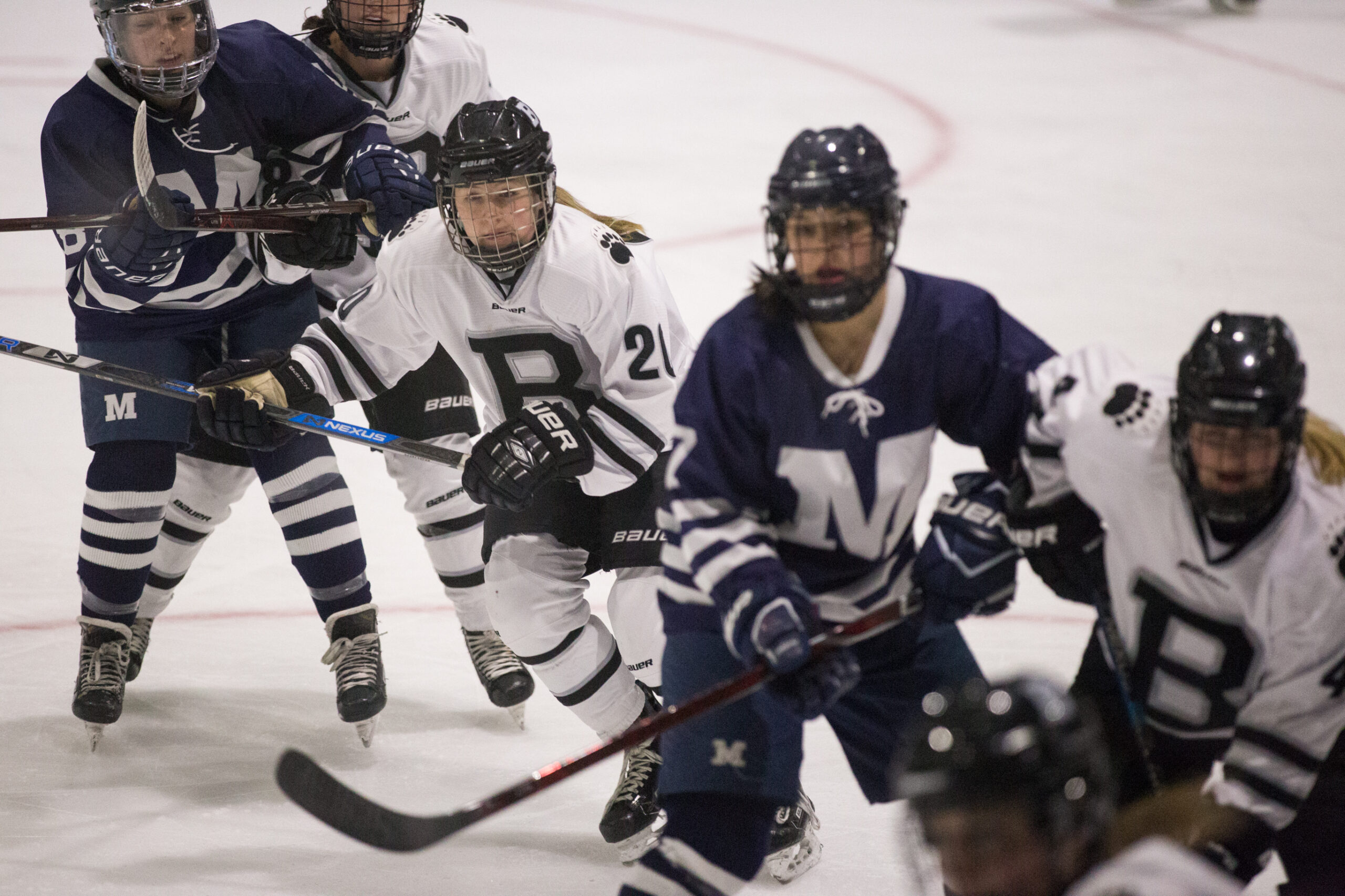Women’s hockey fights to redeem losing season
February 8, 2019
 Ann Basu
Ann BasuAs the postseason approaches, the women’s hockey team is facing a lot of pressure to keep its season alive. With a losing record for the season, the Polar Bears (3-16-1, NESCAC 2-10) need to defeat both Connecticut College (9-8-2, NESCAC 5-5-2) and Trinity (8-9-3, NESCAC 5-4-3) in the next two weeks to be able to compete in the NESCAC Championships.
The team, who swept the Trinity series last year, looks to repeat its previous success in the final regular season game. But there is a night and day difference in record and recognition between the 2017-2018 hockey team—who stood at 9-7-2, NESCAC 3-7-2 at this point last year—and the current Polar Bears.
The two teams appear similar, with first years occupying nearly 25 percent of both rosters. Head Coach Marissa O’Neil works hard to balance class sizes on the team, recruiting about five to seven new athletes each year.
However, there are other traits in her players that O’Neil values as much as, if not more than, experience. “Game sense” and “situational awareness” are intrinsic characteristics that can often make or break a winning season.
According to O’Neil, hockey is a turnover sport, meaning play is fast and fierce. Skaters must not only be aware of their own bodies, but where the puck is at all times. Captain Marissa Fichter ’19 said that “situational awareness” is often improved in the off-season, when teammates play against each other in captains’ practices.
Averaging about 30 shots per game, the Polar Bears do not lack an aggressive offense. Yet their goal average is much lower than they would hope, standing at only 1.4. Neither O’Neil or Fichter attributed this disparity to the improved skill of their NESCAC opponents, but rather the quality of the Polar Bears’ shots.
The surest way to bypass a goalie is to aim into the net’s corners. Yet these shots are difficult, requiring excellent stick control and finesse. In the midst of a game, it can be hard for players to properly line themselves up to make the shot. Additionally, nerves can rattle any skater’s concentration.
The team’s challenge, as Fichter called it, is to maintain “composure in front of the net.” It’s a small part of the team’s larger goal in every season—“to play Bowdoin hockey.”
“Right now, especially after we’ve not had the season that we wanted, everyone is gripping a little bit too much or moving a bit too fast,” said Fichter. “It comes from [feeling] worried that we’re not going to win. But you have to find this composure [and be confident] that you are going to put [the puck] in.”
O’Neil believes that Bowdoin hockey “requires the team to enter the game to win versus playing a game to not lose.”
“When we [play a] game to win, you want to go out and play hockey in the sense that you’re just playing the way you need to to have your best game,” Fichter said. “[It doesn’t] matter who you’re playing.”
At the end of the season, the true mark of a winning team is the strength of its culture and commitment to constant improvement. While O’Neil was disappointed in the season’s record, she was pleasantly surprised to see the strength of her team in the face of adversity. The women’s hockey team strives to “call people in” instead of out. The goal is to not criticize teammates for past mistakes, but to challenge them to always play harder.
“I think our team is really good at holding [ourselves] personally accountable,” said Fichter. “If you’re going to have a bad day you need to focus in on yourself, too. I know we’re all trying to be really strong for one another, so it’s the idea that you can’t let [up] because then that’s letting up for your team.”
The Polar Bears face the Camels tonight at 7 p.m. in Watson Arena.

Comments
Before submitting a comment, please review our comment policy. Some key points from the policy: